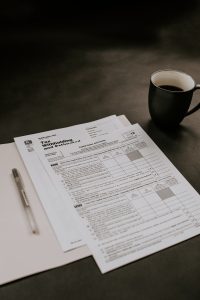Choosing a forex broker is an important decision for any trader, whether they are new to the market or experienced. There are a number of factors to consider when choosing a forex broker, including the broker’s reputation, customer service, trading platform, and fees. However, one factor that is often overlooked but can be important is where the forex broker has its seat.
The location of a forex broker can have an impact on a trader’s experience in a number of ways. For example, the regulatory environment in the broker’s home country can affect the broker’s operations and the protections available to traders. In addition, the location of the broker’s servers can affect the speed and reliability of trading platforms.
Regulatory environment
Forex brokers are regulated by the authorities in the countries where they are based. These regulations are designed to protect traders and ensure that brokers operate in a fair and transparent manner. The regulatory environment can vary significantly between countries, with some offering more protections than others.
For example, brokers based in the European Union are subject to strict regulations under the Markets in Financial Instruments Directive (MiFID II). These regulations require brokers to meet certain standards, such as maintaining minimum capital requirements, segregating client funds, and providing negative balance protection.
In contrast, brokers based in offshore jurisdictions may have less stringent regulatory requirements. While this can allow them to offer more flexible trading conditions, it also means that traders may have less protection in the event of a dispute with the broker.
Servers and trading platform
Another factor to consider when looking at a broker’s location is the location of their servers. The speed and reliability of a trading platform can be affected by the physical distance between a trader’s computer and the broker’s servers.
For example, if a trader is based in Europe and their broker’s servers are located in Asia, there may be a delay in the time it takes for orders to be executed. This delay can be significant in fast-moving markets, where even a few seconds can make a difference.
In addition, the location of a broker’s servers can affect the reliability of their trading platform. If a broker’s servers are located in an area prone to natural disasters, such as hurricanes or earthquakes, there is a greater risk of downtime or data loss.
Conclusion
While the location of a forex broker may not be the most important factor to consider when choosing a broker, it can have an impact on a trader’s experience. Traders should consider the regulatory environment in a broker’s home country and the location of their servers when evaluating different brokers.
Ultimately, the most important factor when choosing a forex broker is to ensure that the broker is reputable, trustworthy, and offers the trading conditions that are most suitable for the trader’s needs. By considering all of the factors that are important to them, traders can make an informed decision and find a broker that will help them achieve their trading goals.






